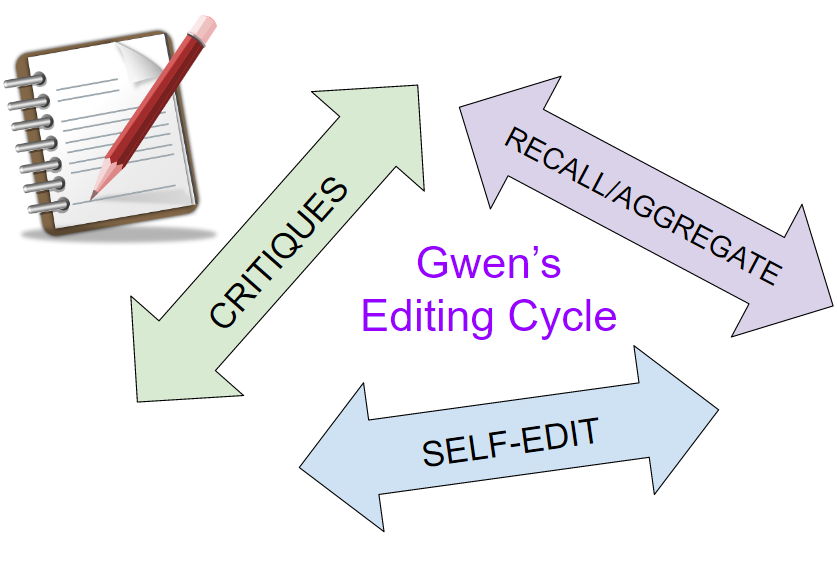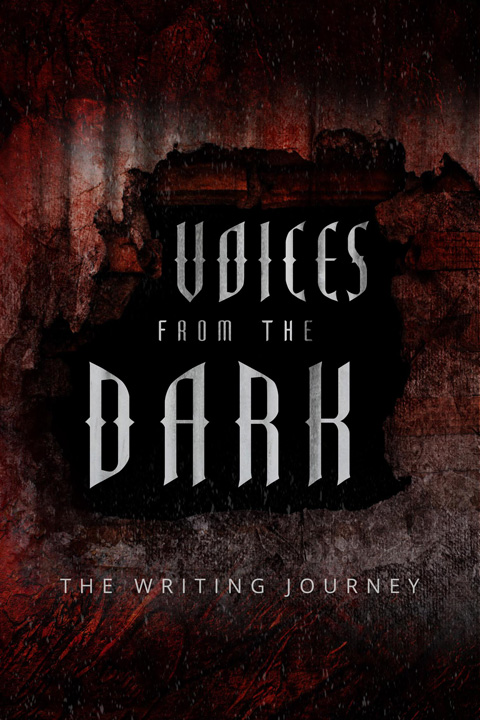Two NaNoWriMos ago, I generated the first draft of a story. I was so impressed with myself and the complexity of my story. It was the best thing I’d ever written. Now, after more than a year of fighting with the revision, I’m not sure I’ve made it structurally any better, but the quality of writing in the chapters I have edited is much, much, better.
In general, I’m stuck. Something sucks and I don’t know how to massage the text into a workable piece of art. Forcing myself to work on the book ends on Facebook or Netflix. I’ve complained to my closest confidants, receiving little sympathy in return because we all know writing is hard and perseverance is the key to finishing that book. “Butt in chair” should be the only advice required, but it hasn’t broken through my block.
My search for resolution, for answers, turned to educational resources. The first idea that resonated with me and it took a couple weeks to understand it, came from the DIY MFA author. She was discussing writer’s voice. She stated that she doesn’t revise sections, but rewrites them when incorporating her changes. In doing this, you avoid editing your voice out of the writing.
Take what you wrote before, set it aside, and start again with a blank page.
In the story “Martian Strain” that I’d published in Voices From the Dark anthology, I now feel confident that I edited all voice out of that horror story. It’s got horror and suspense, but the “voice”, the words I string together uniquely in a way no one else would, became something flat. Publishing the story was worth the experience toward learning the process, but should it have been published? I don’t know.
My current novel, the one I can’t quite make myself edit, doesn’t have the over edited voice problem yet. I’ve been revising and making things cleaner, but still not clean enough to send out for feedback. The want of feedback might be my second problem, however. Lately, I’ve been asking questions of other writers and finding that I already know the answers. All the words I’ve been rearranging, polishing and crafting have been so that I could send it to someone else for answers. Writers need input from others to improve and grow, but the kind of answers I’m looking for are really the meat of what it is to craft a novel.
Writers need input from others to improve and grow, but the kind of answers I’m looking for are really the meat of what it is to craft a novel. It’s my job to provide those answers and I’ve been fighting with myself.
Until I talked to my mother. She is not a writer, nor has it ever been her passion. She cut through all of my whinings with a clarity only a parent can provide.
“Rewrite it. Stop revising and editing. It’s all in your head. You already know the story. The words might come out different, but it will be better.”
And she’s right. I’ve been stuck in the Swampy Middle for too long with this story, trying to fix it, trying to make the words better.
When I put the DIY MFA author’s advice together with my mother’s, it’s so straightforward. I know the middle doesn’t work. I know something needs to change, but massaging the text hasn’t been bringing forward the ideas. The blank page spurs my imagination better than a framework of existing words. The fix is in the creativity. The beginning isn’t horrible, the end is usable, but the Swampy Middle is like a giant game of connect the dots. Right now, I have a collection of dots that don’t form a usable picture, so by setting them aside, I open up my options to take my three-legged dog and turn it into a stallion.
I’ll keep working on my purple prose problem.




